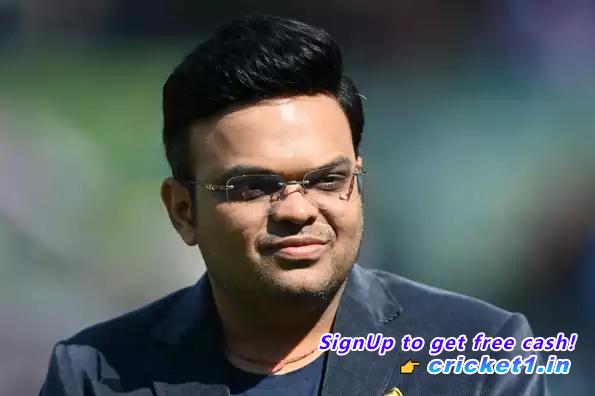
The Board of Control for Cricket in India (BCCI) has decided not to host the ICC Women’s T20 World Cup, as confirmed by Jay Shah, the BCCI secretary. This revelation came during an interaction with journalists from the Times Group at TOI’s Mumbai office on a recent Wednesday.
Jay Shah explained the reasons behind this significant decision, stating, “The ICC approached us to conduct the World Cup. I categorically said no.” This response came in light of the ongoing disturbances in Bangladesh, initially considered by the ICC for relocating the event. Shah elaborated, “Currently, we are in the monsoon season and, on top of that, we will be hosting the women’s ODI World Cup next year. I don’t want to send any signals that we are keen on hosting consecutive World Cups.”
While explaining why the Women’s T20 World Cup bid was turned down, Shah emphasized the importance of the upcoming home series against Bangladesh for the BCCI. “We’ve not yet spoken to the Bangladesh authorities. A new government has just taken charge there. They might reach out to us, or else I will reach out to them. The Bangladesh series is very important to us.” India is set to face Bangladesh in a series consisting of two Test matches and three T20Is, starting on September 19.
The BCCI is also focusing on its development projects, like the High-Performance Centre in Bengaluru, which has been one of its key endeavors and is nearing completion. The inauguration of this state-of-the-art facility is expected next month. Shah detailed the timeline and challenges faced during its development: “After I took over as the secretary in October 2019, a lot of our efforts went towards organizing the IPL amidst the pandemic. The office was shut for two years. When we got our second term in 2022, we decided to push this project forward, something that was initiated in my first term.”
The High-Performance Centre will be accessible to non-cricketers as well. Shah mentioned discussing this with Neeraj Chopra during a recent meeting. The complex will have three grounds and 100 pitches, including 45 indoor turfs. Unique features like replicas of pitches from famed stadiums around the world, such as the Gabba in Brisbane and Kingsmead in Durban, allow the Indian team to prepare for overseas tours on familiar surfaces.
In addition to Bengaluru, cricket academies are being developed across the North-East region and Jammu, recognizing the region’s right and opportunity for growth in the sport. “It’s simple. They have got full membership and are part of the country. Opportunity is their right, and it is our responsibility to provide it.
. Earlier, they received Rs 5 crore, but now they are getting Rs 20 crore to run the game,” Shah confirmed.
VVS Laxman, the head of the National Cricket Academy (NCA), will continue in his role, with his contract set to be renewed following speculation that he might leave. His commitment aligns with the BCCI’s broader goal of sustaining and nurturing cricket talent across all levels.
The BCCI is also contemplating the future of the Impact Player rule introduced in the Indian Premier League (IPL). Shah pointed out that there are both positives and negatives to it, highlighting the need to consider the broadcaster’s perspective. “We had a long chat with franchise owners and among our domestic teams. Some believe it affects all-rounders negatively, while others note it gives an opportunity to an additional Indian player. For me as an administrator, the game is crucial. We will evaluate feedback before making a decision.”
Regarding the Syed Mushtaq Ali Trophy (SMAT), Shah noted that a decision on the Impact Player rule for this domestic competition would be made soon, acknowledging that some teams have struggled with morning start times. This is due to the high volume of matches, and efforts are being made to balance morning and night fixtures. Similarly, the scheduling of Ranji Trophy games has been adjusted to mitigate weather impacts.
Shah also touched upon the Big Auction in the IPL, a critical issue for the franchises. The BCCI values both majority and minority views equally and will make decisions that benefit the game’s growth. The upcoming season may feature 84 games, though this is not final, as the BCCI considers player workload and scheduling constraints.
Special attention is also being given to Test cricket. Shah revealed that discussions are ongoing at the ICC level about instituting a special fund to support Test matches, given their high hosting costs. This initiative underscores the BCCI’s commitment to preserving the longest format of the game.
Regarding Pink Ball Tests, Shah noted the challenges faced in India, where matches tend to conclude in two days, impacting spectators and broadcasters. “As a fan, I would feel disappointed if a match I bought a ticket for ended in two days without a refund. It’s something I feel strongly about,” he explained, adding that the issue is not frequent but significant when it occurs.
Although there’s interest in introducing a World Test Championship for women, Shah pointed out that it would require all nations to play Tests, a condition not yet met universally. He underscored the commitment of Australia and England, while other countries are gradually joining in.
Finally, on the topic of player participation in domestic tournaments like the Duleep Trophy, Shah defended exceptions for star players like Rohit Sharma and Virat Kohli, citing injury risks and comparing practices with other cricketing nations.
In closing, Shah emphasized the unity in coaching roles for different formats and hinted at recruiting a mental conditioning trainer for the national team. The potential merger between Viacom 18 and Disney Star may impact broadcasting rights renewal in 2027, but Shah remains confident in the BCCI’s ability to attract broadcasters, focusing on the growth and branding of Indian cricket.

